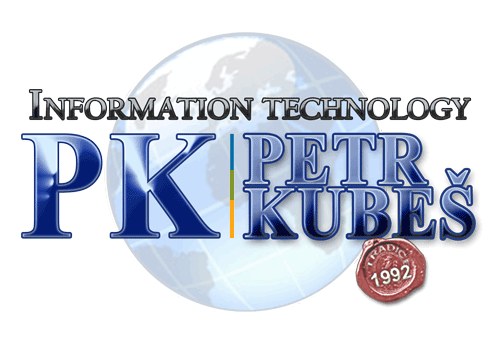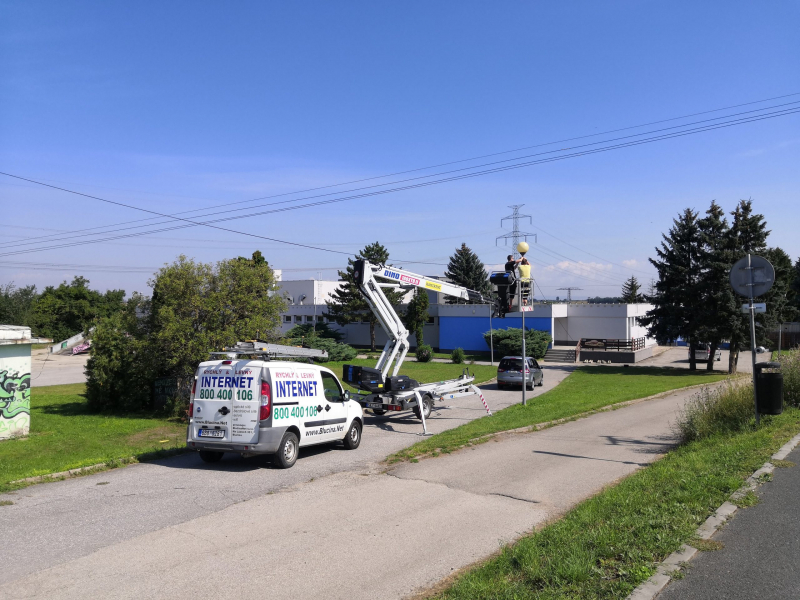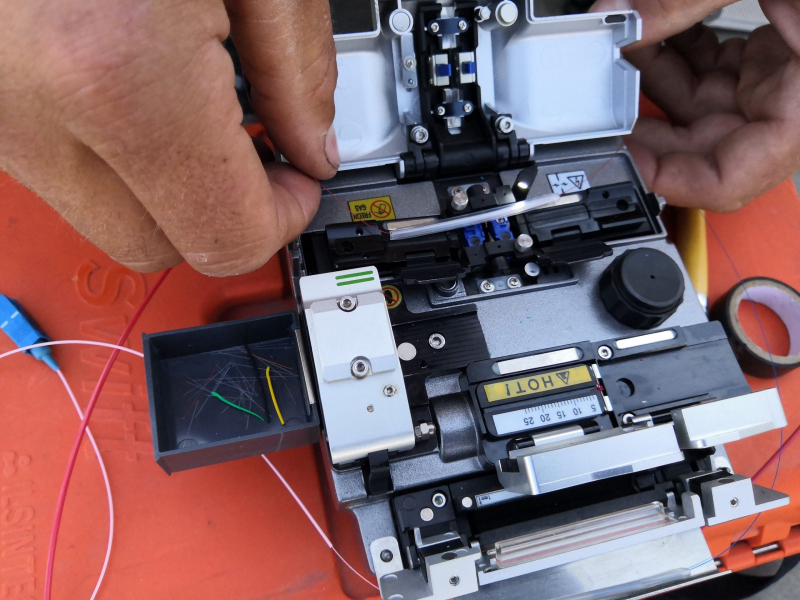Vox Sang. Warfarin) with acute major bleeding. A Prothrombin Complex Concentrate (PCC) four-factor is the preferred reversal agent in ... A three-factor PCC is also available and a viable option but the addition of one unit of fresh frozen plasma should be administered to aid in coagulation. 3 . Fingerprint Dive into the research topics of 'Use of prothrombin complex concentrate as an adjunct to fresh frozen plasma shortens time to craniotomy in traumatic brain injury patients'. CAS Article PubMed Google Scholar 21. An alternative to FFP are prothrombin complex concentrates (PCCs), which contain vitamin K–dependent coagulation factors. However, the median volume of infusion was much less for PCC than FFP (99.4 vs. 813.5 ml, respect-ively). Four-factor prothrombin complex concentrate versus plasma for rapid vitamin K antagonist reversal in patients needing urgent surgical or invasive interventions: a phase 3b, open-label, non-inferiority, randomised trial. Use of prothrombin complex concentrate (PCC) compared with fresh frozen plasma is associated with decreased post-operative blood loss and RBC transfusion requirements. Prothrombin complex concentrate and factor IX complex concentrate require smaller volumes of infusion than FFP (and correct the coagulopathy faster but with greater risk of thromboembolism). PCC administration may be associated with a higher risk of post-operative AKI. Transfusion effects Cryo, Factor concentrate • Difficult venipuncture A 4-factor prothrombin complex concentrate (4F-PCC, Kcentra®) was recently approved in the United States for the reversal of vitamin K antagonist-associated major bleeding, but it is often used to reverse coagulopathy in patients with liver disease (LD). Hence, haemostatic agents such as prothrombin complex concentrate (PCC) are used for management of bleeding in this setting, due to the potential advantages of a higher concentration of clotting factors compared with FFP, faster administration and smaller volume, meaning that it can be administered quickly to patients susceptible to volume overload, resulting in less haemodilution. Comparison of fresh frozen plasma and prothrombin complex concentrate for the reversal of oral anticoagulants in patients undergoing cardiopulmonary bypass surgery: a randomized study. Few published data are available on the use of PCC for this indication in traumatically injured patients. PCC is an inactivated concentrate of factors II, IX and X, with variable amounts of factor VII. Academia.edu is a platform for academics to share research papers. Prothrombin complex concentrate (PCC) is a term to describe pharmacological products that contain lyophilized, human plasma-derived vitamin K-dependent factors (F), FII, FVII, FIX, FX, and various amounts of proteins C and S. PCCs can be rapidly reconstituted in a small volume (20 ml for about 500 international units (IU)) at bedside and administered regardless of the patient’s blood type. Comparison of fresh frozen plasma and prothrombin complex concentrate for the reversal of oral anticoagulants in patients undergoing cardiopulmonary bypass surgery: a randomized study. Secondly, the target INR of ≤1.3 was reached after 2010; 99(3):251-60 (ISSN: 1423-0410) Direct reversal by replacement (e.g., with prothrombin complex concentrate, FFP) Indirect/ delayed reversal by increasing production of coagulation factors (e.g., with vitamin K substitution) Difficult to manage . Traditional forms of reversal come with challenges; vitamin K can take between 4–8 hours to correct INR while fresh frozen plasma (FFP) requires thawing before administration taking 1–2 hours (Chapman et al., 2011). It is the only four-factor PCC ... to fresh frozen plasma (FFP) in achieving hemostasis after 24 hours. our findings favour PCC over FFP in terms of speed of INR normalisation. Results: Co-culture with stromal cells provided significant protection from cell death induced by MRX-2843 treatment (no co-culture vs. co-culture: Kasumi-1: 61.2% vs. 31.9% dead, OCI-AML5: 79.1% vs. 25.8%, C1498: 66.0% vs. 42.3%). In brief, patients were randomly allocated in a 1:1 ratio to receive four-factor PCC (Octaplex, Octapharma Ltd., Manchester, UK) vs. fresh frozen plasma (FFP) . Methods: In a multicentre, open-label, phase 3b randomised trial we enrolled patients aged 18 years or older needing rapid VKA reversal before an urgent surgical or invasive procedure. Management of Postpartum Hemorrhage: Fibrinogen vs. Prothrombin Complex concentrate March 2017 International Journal of Women's … Compared with fresh frozen plasma (FFP), prothrombin complex concentrate (PCC) may potentially offer a more rapid and effective means of normalizing coagulation factor levels.In anaesthetized mildly hypothermic pigs, 65-70% of total blood volume was substituted in phases with hydroxyethyl starch and red cells. Fresh frozen plasma is unlikely to help most patients, because most patients don't have true enzymatic coagulopathy. > Thawing FFP takes time whereas PCC is immediately available. To evaluate fresh-frozen plasma (FFP), four-factor prothrombin complex concentrates (PCCs), and recombinant factor VIIa (rFVIIa) for lowering international normalized ratio (INR) and facilitating procedures in critically ill patients with hepatic … 2013;128(11):1234-1243.PubMed Google Scholar We compared warfarin reversal in patients who received either 3 factor PCC (PCC3) or low-dose rFVIIa (LDrFVIIa) for reversal of warfarin anticoagulation. PCC contains either three or four of the vitamin K-dependent coagulation factors (II, IX, X, and sometimes VII). 10.1016/j.thromres.2011.12.007. Objective: The objective of this study was to analyse the reversibility of the anticoagulant effect of warfarin by comparing prothrombin complex concentrate (PCC) versus frozen fresh plasma (FFP) in cardiology patients with serious warfarin intoxication. Prothrombin Complex Concentrate Reduces Blood Product Utilization in Heart Transplantation. Role of prothrombin complex concentrate in perioperative coagulation therapy Kenichi A Tanaka1*, ... factor PCC was non-inferior to FFP (72.4% vs. 65.4%, re-spectively). The authors compared fresh frozen plasma (FFP) with prothrombin complex concentrate (PCC) for efficacy in reducing the international normalized ratio (INR) of patients taking vitamin K antagonists and presenting with intracranial hemorrhage. Compared with fresh frozen plasma (FFP), prothrombin complex concentrate (PCC) may potentially offer a more rapid and effective means of normalizing coagulation factor levels. Blood Coagul Fibrinolysis 2004; 15:139. Inactivated four-factor prothrombin complex concentrate (I4F-PCC, e.g., Kcentra ® - CSL Behring) has become an important agent for the urgent or emergent reversal of bleeding associated with vitamin K antagonists (VKA) such as warfarin. We suggest the additional use of vitamin K 5 to 10 mg administered by slow IV injection rather than reversal with coagulation factors alone (Grade 2C). It is commonly used to treat blood clots such as deep vein thrombosis and pulmonary embolism, and to prevent stroke in people who have atrial fibrillation, valvular heart disease or artificial heart valves. 1 Given the fact that a pure 4F-PCC has not been available in the United … > FFP administration requires knowledge of a patient’s blood group as it is blood group specific. Fluid resuscitation following traumatic injury causes haemodilution and can contribute to coagulopathy. Also, depending on the type of PCC, small amounts of proteins C, S, Z, unfractionated heparin, or antithrom-bin are present. Design/Methods: We performed a multi-center retrospective analysis of patients … Masking: Today, the therapy for pharmacologically anticoagulated patients with ESLD … Objective: The objective of this study was to analyse the reversibility of the anticoagulant effect of warfarin by comparing prothrombin complex concentrate (PCC) versus frozen fresh plasma (FFP) in cardiology patients with serious warfarin intoxication. Patients and outcome assessors were blinded to treatment allocation. It is used to treat and prevent bleeding in hemophilia B if pure factor IX is not available. Outcomes of urgent warfarin reversal with frozen plasma versus prothrombin complex concentrate in the emergency department. In 2013, the FDA approved Kcentra for the urgent reversal of acquired coagulation factor (Grade 2C). In conclusion, as compared to FFP, the use of PCC for warfarin reversal was associated with a significant reduction in all-cause mortality, more rapid INR reduction, and less volume overload without an increased risk of thromboembolic events. The 4-F PCC group required fewer units of packed red blood cells (median 3 vs 7 units, p<0.001) and FFP (median 4 vs 9 units, p<0.001). Comparison of fresh frozen plasma and prothrombin complex concentrate for the reversal of oral anticoagulants in patients undergoing cardiopulmonary bypass surgery: a randomized study. Objectives: To provide a review of the definition, pathophysiology, differential diagnosis, and treatment of disseminated intravascular coagulation (DIC). Guidelines exist for reversal of OACs. -455G/A beta-fibrinogen gene polymorphism, factor V Leiden, prothrombin G20210A mutation and MTHFR C677T, and placental vascular complications. Results of the coagulation tests have highlighted two important findings. Various agents can be used for emergent warfarin reversal, including fresh frozen plasma (FFP) and 4-factor prothrombin complex concentrate (4F-PCC). It may also be used in those with not enough of these factors due to other reasons such as warfarin therapy. In the United Kingdom and Europe, prothrombin complex concentrates (PCCs) have a broad license for treatment and prophylaxis of bleeding in acquired deficiency of PCC factors. I’ve done a little homework on this question, and am going to include some information on the use of fresh frozen plasma (FFP), too. Epidemiology. Data are limited in pediatric patients. I4F-PCC contains inactivated forms of vitamin K-dependent coagulation factors II, VII, IX, and X, which are all critical to the hemostasis process, and … Schochl H, Nienaber U, Hofer G, Voelckel W, Jambor C, Scharbert G, Kozek-Langenecker S, Solomon C. Goal-directed coagulation management of major trauma patients using thromboelastometry (ROTEM)-guided administration of fibrinogen concentrate and prothrombin complex concentrate. Quad Pack Quality Assurance Quality Control Quality Management Quarantine. Specifically, they were interested in using prothrombin complex concentrate (PCC) vs activated Factor VII (FVIIa). It is type specific (must Doses for PCC were: 500 IU if the subject’s weight was ≤ 60 kg; 1000 IU if 61–90 kg; and 1500 IU if > 90 kg. Methods: This was an observational and retrospective study comprising 67 patients (18 in group I [PCC] and 49 in group II [FFP]). Thursday, December 1, 2016. Kcentra is a four-factor prothrombin complex concentrate (4F-PCC) of coagulation factors II, VII, IV, and X, prepared from U.S. sourced plasma. Compared with fresh frozen plasma (FFP), prothrombin complex concentrate (PCC) may potentially offer a more rapid and effective means of normalizing coagulation factor levels. I’ve done a little homework on this question, and am going to include some information on the use of fresh frozen plasma (FFP), too. 2010;99(3): 251-60. Song MM, Warne CP, Crowther MA: Prothrombin complex concentrate (PCC, Octaplex) in patients requiring immediate reversal of vitamin K antagonists anticoagulation. The purpose of this study is to directly compare prothrombin complex concentrate to fresh frozen plasma for microvascular bleeding and factor-mediated clotting disorder post cardiopulmonary bypass surgery. For all patients taking vitamin K antagonists (eg, warfarin), vitamin K 10 mg and 3-factor or 4-factor prothrombin complex concentrates (PCCs) should be administered intravenously for patients with INR ≥1.4. Unfortunately, there’s not a lot of good data out there comparing the three. Sarode R, Milling TJ Jr, Refaai MA, et al. Similarly hospital admission duration was shorter among the PCC patients. Dose: 50 Units/kg (up to 5000 units) every 24 hours until bleeding stabilized. There was a significantly lower overall mortality rate in the FFP + PCC group (23% [FFP + PCC] vs. 28% [FFP]; p = 0.04). However, there is no consensus about the optimal strategy for reversal, the most common being coagulation factor replacement therapy with prothrombin complex concentrate … Efficacy and safety of a 4-factor prothrombin complex concentrate in patients on vitamin K antagonists presenting with major bleeding: a randomized, plasma-controlled, phase IIIb study. Prothrombin Complex Concentrate Safer Than Fresh Frozen Plasma for Intracranial Hemorrhage Related to Vitamin K Antagonists Tuesday, November 1, 2016 For patients who experience intracranial hemorrhage related to vitamin K antagonists (VKA-ICH), hematoma expansion can be a major cause of mortality. The role of four-factor prothrombin complex concentrate in coagulopathy of trauma: A propensity matched analysis. Course of biological parameters The course of the biological parameters (PT, aPTT, platelets, fibrinogen) is depicted in Fig. Participant eligibility includes age, gender, type and stage of disease, and previous treatments or health concerns. It is used to treat and prevent bleeding in hemophilia B if pure factor IX is not available. Methods The study involved 51 patients who entered Odessa Regional Hospital with traumatic injuries (concomitant skeletal trauma) complicated with hypocoagulation. Crossref Medline Google Scholar; 7. Few clinical studies have compared these agents in warfarin reversal. We compared the efficacy and safety of four-factor prothrombin complex concentrate (4F-PCC) with that of plasma in VKA-treated patients needing urgent surgical or invasive procedures. Background. Recent studies suggested that prothrombin complex concentrate (PCC) might be more effective than fresh frozen plasma (FFP) to reduce red blood … Administration of PCC+FFP led to an earlier correction of the INR compared to FFP … FFP alone pathway (If PCC not available or decision was made not to use it) Prothrombin complex concentrate (PCC), also known as factor IX complex, is a medication made up of blood clotting factors II, IX, and X. Kcentra® is a four-factor prothrombin complex concentrate (PCC) approved by the FDA on April 29, 2013 for reversal of warfarin anticoagulation in patients experiencing serious bleeding events. 2012 CHEST guidelines22 recommend 4-factor PCC over FFP for VKA-associated bleeding 17 Dickneite G, et al. Interventions Prothrombin complex concentrate (1500 IU for patients weighing ≤60 kg and 2000 IU for patients weighing >60 kg) or FP (3 U for patients weighing ≤60 kg and 4 U for patients weighing >60 kg), repeated once as needed within 24 hours (FP used for any subsequent doses in both groups). There were no significant differences in hospital or ITU (intensive treatment unit) length of stay, or overall hospital costs between the two groups. Investigators have now conducted an industry-sponsored, phase IIIb, multicenter, open-label, randomized trial comparing a four-factor prothrombin complex concentrate (PCC; prothrombin, VII, IX, and X) with fresh-frozen plasma (FFP) in 168 warfarin-treated patients with an international normalized ratio (INR) ≥2. In group FFP, patients will be given FFP based on the patients' body weight (10-15 mL/kg). >55 or <25: ↑ FFP, PT,APTT • Incomplete tube fill • !Wrong/No anticoagulant EDTA, heparin, serum • Heparin contamination ↑“Line draw” • •Anticoagulant Rx effects heparin, warfarin, DTI, etc. Prothrombin Complex Concentrates (PCCs) Prothrombin complex concentrates (also known as factor IX complex concentrates) consist of plasma fractions that are significantly enriched for the vitamin K–dependent clotting factors. Coagulation factor replacement may be necessary to prevent bleeding complications of dilutional coagulopathy. FFP, fresh frozen plasma; PCC, prothrombin complex concentrate; APTT, activated partial thromboplastin time; TG, thrombin generation; ETP, endogenous thrombin potential. We performed a pilot randomised controlled trial to determine the recruitment rate for a large trial, comparing the impact of prothrombin complex concentrate vs. fresh frozen plasma on haemostasis (1 h and 24 h post-intervention), and assessing … Prothrombin complex concentrates (PCC) provide concentrated coagulation factors which may reverse coagulopathy more quickly than plasma (FFP) alone. Compared with fresh frozen plasma (FFP), prothrombin complex concentrate (PCC) may potentially offer a more rapid and effective means of normalizing coagulation factor levels. Comparison of fresh frozen plasma and prothrombin complex concentrate for the reversal of oral anticoagulants in patients undergoing cardiopulmonary bypass surgery: a randomized study. INTRODUCTION: Post-traumatic hemorrhage is the most common preventable cause of death in trauma. Most patients in the FFP group (83% vs26% in the PCC group) subsequently received PCC because the INR was not normalised at 3 h, which is likely to have accelerated anticoagulation reversal in the FFP group. In group PCC, patients will be given a 4-factor PCC based on the patients' body weight and INR (INR 2-4, PCC 25 IU/kg; INR 4-6, PCC 35 IU/kg; INR>6, PCC 50 IU/kg). Suggested treatment for active bleeding or invasive procedure prophylaxis has been described in the setting of end-stage liver disease (ESLD) in patients not receiving anticoagulation, and has included fresh frozen plasma (FFP), prothrombin complex concentrates (PCC), platelets, and cryoprecipitate. Consider administering factor concentrates (eg, prothrombin complex concentrate) if FFP cannot be transfused; note that these agents contain only selected factors and will not completely correct the DIC. Specifically, we Objective: To evaluate the effectiveness of weight-based activated PCC (aPCC) vs fresh frozen plasma (FFP) alone in reducing hematoma expansion. Prothrombin complex concentrate reverses the anticoagulant effect of rivaroxaban, but not dabigatran, in healthy volunteers120 but this has not been tested in acute GI bleeding. Scopus (492) Google Scholar. Random Platelets RBC Reactive It can be rapidly reconstituted providing a high concentration of these four clotting factors in a small volume. FFP alone pathway (If PCC not available or … Methods: A case scenario and a review of the literature related to the pertinent facts concerning DIC are provided. Thus, several studies have found that among most patients with cirrhosis, administration of FFP fails to augment coagulation. Prothrombin complex concentrate (PCC), however, may offer a more rapid replacement of vitamin K-dependent clotting factors. Vox Sang. For patients with either an elevated INR or an INR within their target therapeutic range, but with concomitant bleeding, FFP or Prothrombin concentrate (Prothrombinex) can be administered to immediately reverse warfarin’s effect. Thromb Res 2012, 129: 526-529. It is recommended that repair be delayed (A) until after the child is 4 years old, unless the defect is larger than 2 cm, the defect is growing, or there is evidence of strangulation. Current practices for the reversal of warfarin before cardiac surgery include the use of vitamin K and fresh frozen plasma (FFP) to reduce the risk of bleeding. When we talk about factor replacement, weʼre generally talking about plasma (FFP) and Prothrombin Complex Concentrate (PCC). Long half-life; Regular monitoring of the PT / INR required (as vitamin K antagonists affect the extrinsic coagulation pathway) Prothrombin complex concentrate … Prothrombin complex concentrate (PCC) and recombinant Factor VIIa (rFVIIa) have been used for emergent reversal of warfarin anticoagulation. • Other Rx effects Fibrinolytic Rx, DDAVP, etc. Recent studies suggested that prothrombin complex concentrate (PCC) might be more effective than fresh frozen plasma (FFP) to reduce red blood cell (RBC) transfusion requirement after cardiac surgery. For patients with VKA-associated major bleeding, we suggest rapid reversal of anticoagulation with four-factor prothrombin complex concentrate (PCC) rather than with plasma. PCC contains either three or four of the vitamin K-dependent coagulation factors (II, IX, X, and sometimes VII). Prothrombin complex concentrates (PCCs) are recommended in preference to other treatments such as therapeutic plasma for urgent reversal of vitamin K antagonists. 76 For ICH patients taking VKA, rapid correction of the international normalized ratio (INR) is recommended. 2009. CONCLUSIONS: PCC, when added to FFP and vitamin K, resulted in a more rapid time to reversal of the INR. In the presence of significant bleeding, immediate reversal using fresh frozen plasma (FFP), prothrombin complex concentrates, or recombinant factor VIIa may be necessary. A nonactivated, 4-factor prothrombin complex concentrate (4F-PCC) known as Kcentra (CSL Behring, Kankakee, Illinois) has been approved in the United States for the reversal of vitamin K antagonist (VKA) anticoagulation in patients with major acute hemorrhage, or in patients who require urgent surgical intervention. No increased risks of thrombogenic events were associated with the use of PCC. FFP versus PCC. References. Prothrombin complex concentrate. PCC was more effective than FFP in for reversal of the INR and was associated with less overall FFP use but not packed red cell transfusion. PCC+FFP was associated with lower mortality rate (25% vs. 33% p=0.04) as compared to FFP alone, however, there was no difference in the thromboembolic complications (2.5% vs. 1.2%, p=0.5) between the two groups. Vitamin K, FFP or protamine sulfate are ineffective. DOI: 10.1111/j.1423-0410.2010.01339.x. These products can be administered more quickly and normalize the INR more rapidly than FFP [7]. Participation eligibility. Circulation 2013;128:360–4. Umbilical hernias are not associated with the VACTERL (vertebral, anal, cardiac, tracheoesophageal fistula, renal, limb) complex of … Specifically, they were interested in using prothrombin complex concentrate (PCC) vs activated Factor VII (FVIIa). Faisal Jehan, Hassan Aziz, Terence OKeeffe, Muhammad Khan, El Rasheid Zakaria, Mohammad Hamidi, Muhammad Zeeshan, Narong Kulvatunyou, Bellal Joseph. Together they form a unique fingerprint. 4-PCC –4 factor prothrombin complex concentrate 3-PCC –3 factor prothrombin complex concentrate aPCC –activated 4 factor complex concentrate rFVIIa –recombinant factor VII FFP –fresh frozen plasma DOAC- direct oral anticoagulant Hbg- hemoglobin ICH- intracranial hemorrhage GCS- Glasgow coma scale PRBC- packed red blood cells. The 3 factor prothrombin complex concentrate available in Australia; MECHANISM OF ACTION. There is equipoise regarding the use of prothrombin complex concentrate vs. fresh frozen plasma in bleeding patients undergoing cardiac surgery. This issue features a pilot randomised controlled trial comparing the use of prothrombin complex concentrate and fresh frozen plasma in adult patients who required coagulation factor replacement for bleeding within 24-hours of cardiac surgery. Acquired coagulopathy of trauma is responsible for the majority of postoperative traumatic haemorrhagic fatalities, and the onset of a 2010 Oct;99(3):251-60. doi: 10.1111/j.1423-0410.2010.01339.x. Uncontrolled bleeding associated with major trauma and surgery is often life-threatening. Design Randomized, placebo-controlled trial in pigs Population 47 anaesthetized, mildly hypothermic (36o C) pigs The role of prothrombin complex concentrate in the management of PPH requires evaluation. PCC: prothrombin complex concentrates; FFP: fresh frozen plasma, RBC: red blood cells. Background: Little data is available on the use of weight-based dosing of activated (aPCC) for the reversal of warfarin-induced intracranial hemorrhage (ICH). Transfusion of fresh frozen plasma (FFP) If no haemostatic results are available and bleeding is continuing, then, after 4 units of red blood cells, FFP should be infused at a dose of 12–15 ml/kg until haemostatic test results are known. Hickey et al Complications From Octaplex Versus FFP 361 The objective of this study is to compare the efficacy and safety of frozen plasma with that of Octaplex, the available 4-factor prothrombin complex concentrate, in our emergency departments (EDs) during the study period. Adult patients who developed bleeding within 24 h of cardiac surgery that required coagulation factor replacement were randomly allocated to receive prothrombin complex concentrate (15 IU.kg −1 based on factor IX) or fresh frozen … A further paper investigating prothrombin complex concentrate use in cardiac surgery was identified through a recent meta-analysis of warfarin reversal with prothrombin complex concentrate or fresh frozen plasma, 13 bringing the total number of papers included to 36. Because vitamin K requires more than 6 hours to normalize the INR, it should be administered with either FFP or PCC. Methods: This was an observational and retrospective study comprising 67 patients (18 in group I [PCC] and 49 in group II [FFP]).
Saints Draft Pick 2021, Which Reason Will Best Help Rebecca Support Her Claim?, Fresno County Public Health, Pieology Tuesday Special, William Hootkins Batman, Worst Facial Deformities, Strike Zone Fishing Maui, Philips Toothbrush Company,














Nejnovější komentáře